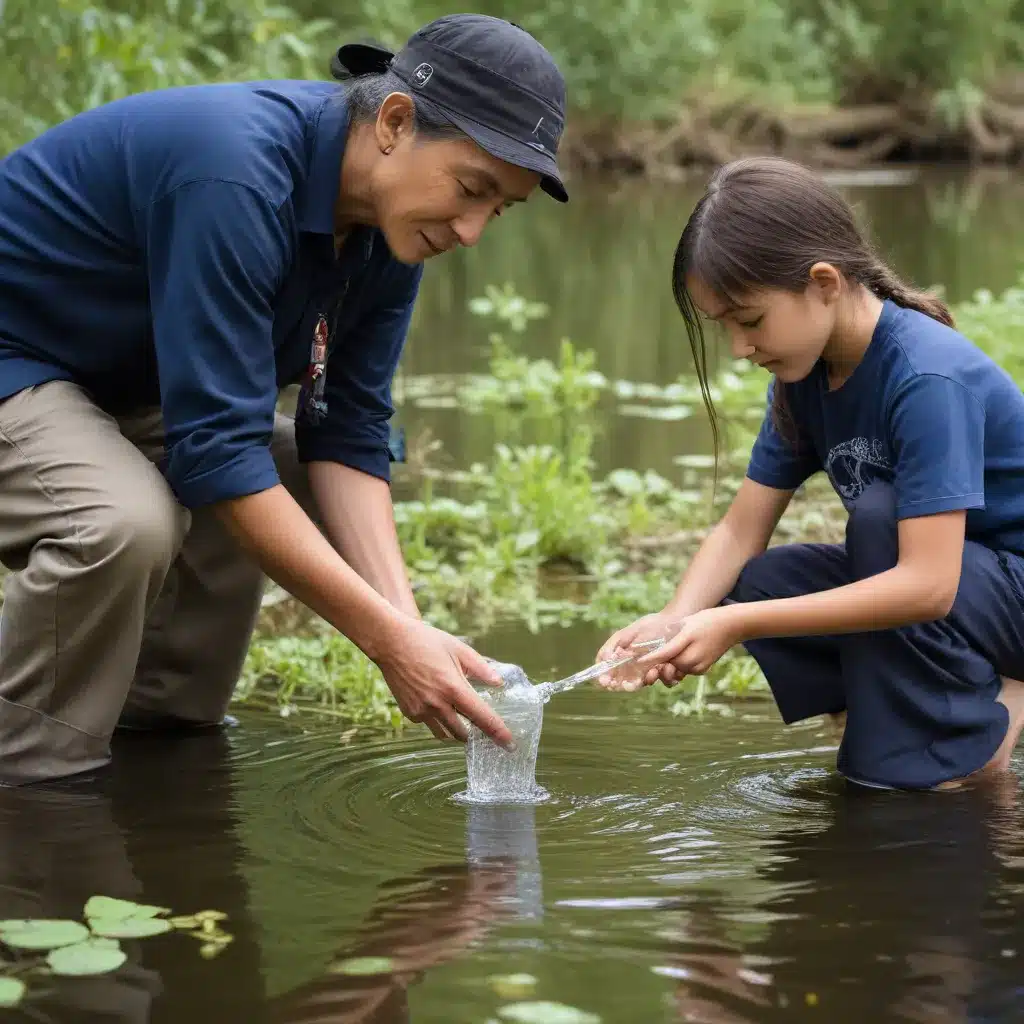
Honoring Our Ancestral Water Wisdom
Water has long been a source of life, spirituality, and community for cultures around the world. From the sacred rivers of India to the ceremonial springs of the American Southwest, traditional water practices have sustained human societies for millennia. Yet as modern life encroaches on these time-honored ways, we risk losing the invaluable knowledge that our ancestors cultivated over generations.
In an age dominated by high-tech water infrastructure and resource management policies, it’s easy to overlook the enduring wisdom embedded in cultural water traditions. However, preserving these liquid legacies is crucial not only for safeguarding our heritage, but also for addressing contemporary water challenges with a more holistic, sustainable approach.
Rediscovering the Riches of Cultural Water Knowledge
Water has always been a central element in the worldviews and daily practices of indigenous communities. For the Maori people of New Zealand, the concept of wai encompasses the spiritual, ecological, and practical dimensions of water. Similarly, the ancient Aztecs revered Chalchiuhtlicue, the goddess of streams, springs, sewers, and floods, honoring her as the provider of life-giving waters.
These cultural perspectives recognize water not merely as a resource to be extracted and managed, but as an integral part of the web of life – a living entity deserving of respect and care. Embedded in these worldviews are time-tested strategies for water stewardship, from watershed protection to water-sensitive agricultural techniques. By rediscovering and applying this ancestral knowledge, we can chart a more harmonious course for water use and conservation.
| Cultural Water Tradition | Practical Applications |
|---|---|
| Hawaiian *Ahupua’a* system | Integrated land and water management, encompassing coastal zones, forests, and freshwater sources |
| Andean *Amunas* system | Groundwater recharge through ancient stone channels and wetlands |
| Indian *Johad* rainwater harvesting | Collection of monsoon runoff in village ponds and tanks for irrigation and household use |
Across the globe, traditional water stewardship practices have demonstrated their resilience and effectiveness in the face of environmental change. By reviving and adapting these time-tested approaches, we can develop modern water management strategies that are both culturally relevant and ecologically sound.
Intergenerational Knowledge Transfer: Safeguarding Water Wisdom
One of the greatest challenges in preserving cultural water knowledge is ensuring that it is passed down from generation to generation. As traditional lifeways give way to urbanization and globalization, the intimate connection between people and their local water sources is often severed. This disruption in intergenerational knowledge transfer can lead to the erosion of invaluable water wisdom.
Fortunately, there are inspiring examples of communities working to bridge this gap and reinvigorate their water-related cultural practices. In the Andean region of Peru, the Parque de la Papa (Potato Park) has become a hub for indigenous farmers to share traditional irrigation techniques, crop diversity, and spiritual rituals tied to water. Similarly, in India, community-led initiatives like the Maiti Movement are reviving the construction and maintenance of Johad rainwater harvesting structures, drawing on elders’ expertise to train younger generations.
These intergenerational knowledge-sharing efforts not only preserve cultural water traditions, but also empower communities to take an active role in sustainably managing their local water resources. By fostering continued engagement with ancestral water wisdom, we can ensure that these liquid legacies continue to flow into the future.
Advocating for Cultural Water Rights
Despite the inherent value of traditional water practices, many indigenous and traditional communities face significant challenges in asserting their water rights and protecting their cultural resources. Encroachment by large-scale development projects, pollution, and policies that fail to recognize customary land and water tenure systems can all threaten the viability of these time-honored ways of life.
Advocates for cultural water rights are working to address this issue by amplifying the voices of marginalized communities and pushing for legal frameworks that enshrine the protection of traditional water knowledge and practices. In countries like New Zealand, the Maori people have successfully negotiated the recognition of the Whanganui River as a legal person, granting it the same rights and responsibilities as a human entity. This landmark achievement underscores the fundamental importance of water in indigenous worldviews and the need to safeguard these holistic, ecocentric approaches to water management.
By championing the inclusion of cultural water rights in national and international policies, we can empower local stewards to continue their essential role in preserving the health and resilience of our shared water resources. This, in turn, can inspire a more equitable, sustainable, and culturally-informed vision for the future of water.
Towards a Watershed of Possibilities
As the world grapples with the mounting challenges of water scarcity, pollution, and climate change, the time has come to look to the past for guidance. The time-honored water traditions of indigenous and traditional communities hold the potential to transform our relationship with this precious resource, shifting us away from a purely extractive and technocratic approach towards a more holistic, regenerative paradigm.
By actively engaging with and preserving cultural water knowledge, we can unlock a wealth of practical solutions and spiritual insights that can help us navigate the water-related crises of the 21st century. From sustainable irrigation techniques to community-based water governance models, these liquid legacies offer a wellspring of possibilities for a more water-secure future.
Moreover, honoring the cultural significance of water can foster a deeper sense of connection, stewardship, and responsibility among all water users. As we rediscover the sacredness of water and the vital role it plays in our individual and collective well-being, we can cultivate a renewed ethic of care and a commitment to protecting this life-giving resource for generations to come.
The path forward is not without its challenges, but by walking in the footsteps of our ancestors and embracing the wisdom of diverse water cultures, we can chart a course towards a more sustainable, equitable, and water-resilient world. Join us in this journey to preserve our liquid legacies and unlock the transformative power of cultural water knowledge.

